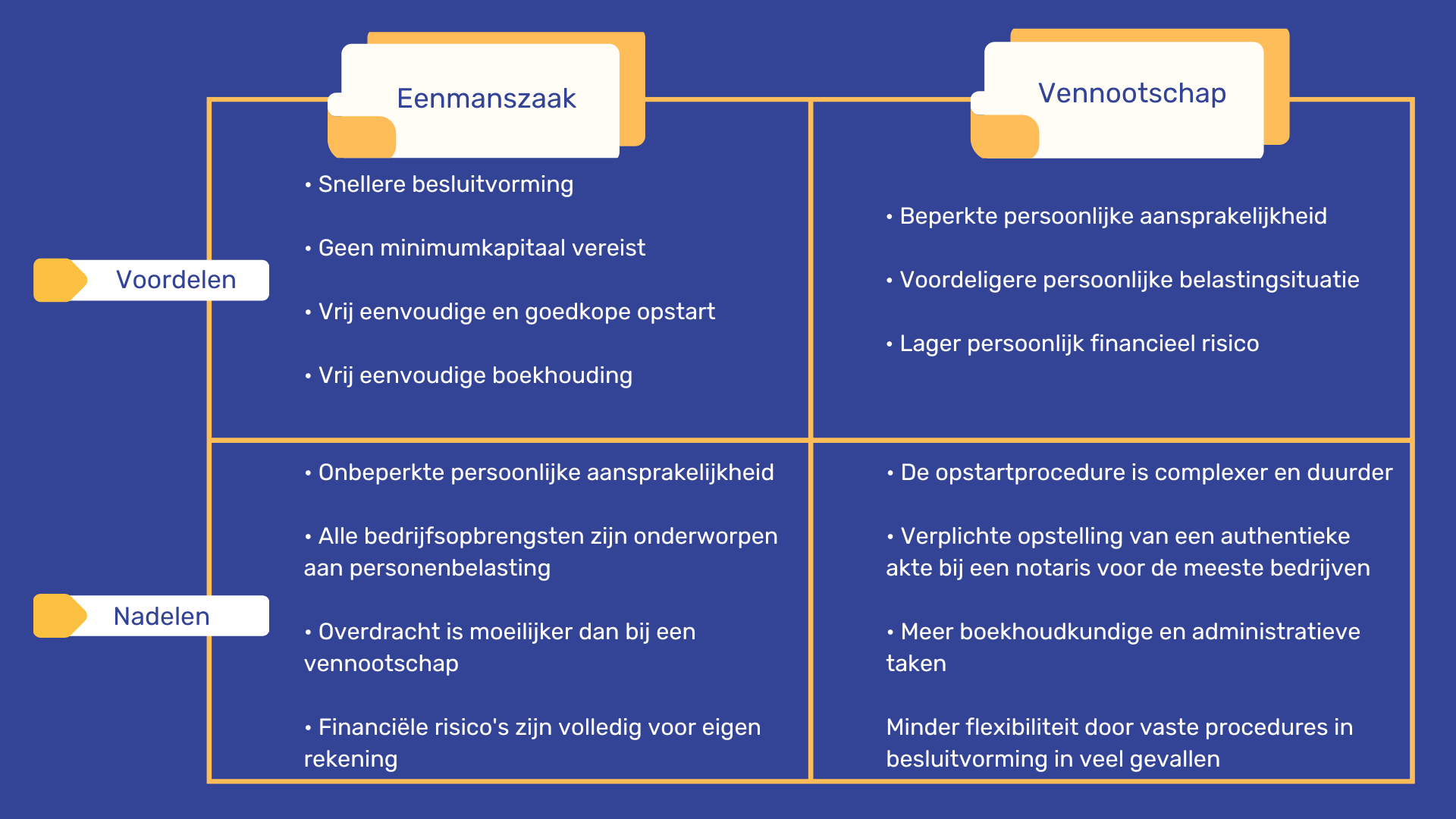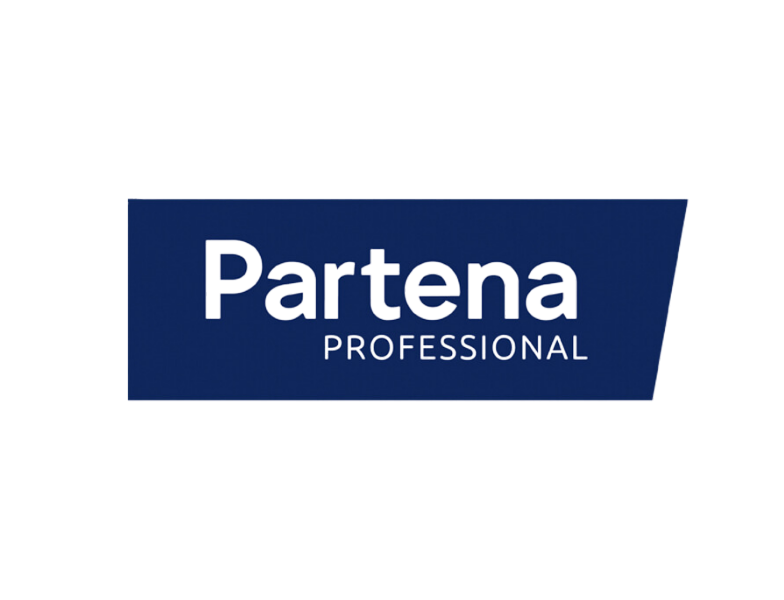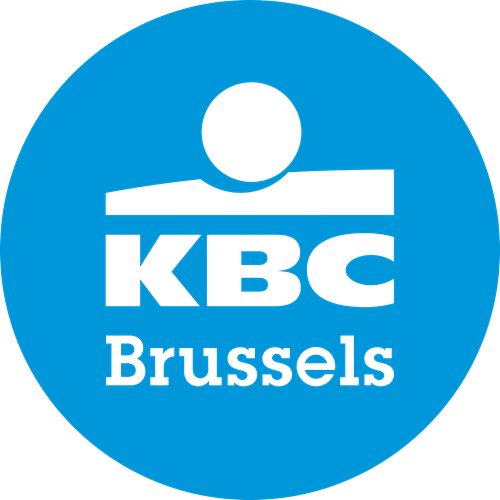Créer une entreprise à Bruxelles
Pourquoi s'installer en Belgique ?
- La Belgique est stratégiquement située au cœur de la plus grande mégapole d'Europe, la dorsale européenne qui traverse le continent de Londres à Milan.
- Sa position au cœur de l'Europe permet d'atteindre facilement près de 500 millions de consommateurs.
- Bruxelles n'est qu'à quelques heures des plus grandes places boursières d'Europe : Londres - The City, Paris - La Défense, Amsterdam - Berlage stock exchange, et Francfort - La Börse Frankfurt.
- La Belgique se trouve à proximité immédiate de nombreux moyens de transport (autoroutes, chemins de fer, ports de commerce).
- Elle dispose d'une main-d'œuvre qualifiée de qualité.
- La population est souvent multilingue (au cœur de nombreuses institutions européennes).
- Le système bancaire belge est particulièrement fiable, ce qui permet d'obtenir des prêts sans risque.
- Il y a des avantages financiers lors de l'ouverture d'une entreprise en Belgique :
° Des procédures administratives simples et réduites,
° Un taux de taxation plus faible que dans d'autres pays, comme la France ou l'Allemagne.
° Des conventions fiscales signées avec les principales places financières asiatiques (Hong Kong, Macao, etc.), ce qui facilite la commercialisation de vos produits à l'international.
… et Bruxelles ?
- Bruxelles, capitale de la Belgique et de l'Union européenne, siège de grandes institutions européennes et internationales, vous permet de bénéficier d'un environnement véritablement international.
- Bruxelles-Capitale est la seule région administrative bilingue de Belgique. Vous pouvez choisir entre le français et le néerlandais pour tous vos documents officiels.
- Bruxelles représente 21 % du PIB de la Belgique.
- En installant votre entreprise à Bruxelles, vous faites partie de l'écosystème bruxellois, avec ses 42 000 entités juridiques dans un périmètre de seulement 3 km.
- Vous pouvez devenir membre de la Brussels business Community via Beci - Chambre de Commerce et d'Industrie de Bruxelles et bénéficier d'un réseau, d'événements, de formations, d'un accès à des plateformes internationales, d'un soutien d'experts, et bien plus encore !

Prêt à vous lancer dans la grande aventure du lancement de votre entreprise à Bruxelles ?
Le partenariat de Beci - Chambre de Commerce de Bruxelles, Partena Professional, et KBC Brussels vous soutiendra tout au long du chemin !
Les éléments à considérer avant de commencer
- Tout d'abord, vous devez choisir votre statut, votre forme juridique et enfin le type de société, le cas échéant. Nous vous guidons ici pour prendre cette décision.
- Dans quelle Région de Belgique voulez-vous enregistrer votre entreprise ? La Belgique se compose de trois Régions distinctes : La Flandre, la Wallonie et la Région de Bruxelles-Capitale. Les exigences, les procédures et l'assistance diffèrent légèrement d'une région à l'autre, mais la différence la plus importante est la langue. En Flandre, toute la documentation officielle est rédigée en néerlandais, en Wallonie, en français, et à Bruxelles, elle peut être rédigée dans l'une ou l'autre de ces langues. L'allemand est également l'une des langues officielles de la Belgique, avec une petite communauté germanophone en Wallonie, mais l'allemand n'est pas utilisé à Bruxelles.
- Si vous résidez en Wallonie et que vous souhaitez vous lancer en tant qu'indépendant ou créer une société dont le siège social se trouve en Wallonie, vous devez prouver vos capacités entrepreneuriales, à savoir des connaissances de base en matière de gestion et des compétences professionnelles, le cas échéant. En Région de Bruxelles-Capitale et en Flandre°, cela n'est pas nécessaire. Nous vous conseillons de prendre contact avec l'un des guichets d'entreprises en Wallonie°.
- Toutes les procédures de ce document se réfèrent à la création d'entreprise en Région de Bruxelles-Capitale.
° Si vous êtes intéressé par la création d'une entreprise en Flandre, veuillez consulter le site web de cette administration régionale et son centre de création d'entreprises VLAIO
° Pour la Wallonie, adressez-vous au site officiel de la région et à son centre de création d'entreprises 1890.
- Vous devez être majeur·e (âgé·e d'au moins 18 ans)
- Vous devez être un·e citoyen·ne de l'UE. Si ce n'est pas le cas, vous devez posséder une carte professionnelle de ressortissant·es non- européen·nes (à la fois pour être indépendant·e et pour ouvrir une entreprise).
- Vous n'avez jamais été condamné·e pour une faute grave ou un délit
- Vous devez avoir la capacité juridique (vous n'êtes pas dirigé·e par un·e administrateur·ice provisoire et vous n'avez pas été déclaré juridiquement ou judiciairement incapable)
- En Wallonie, vous devez prouver que vous possédez les compétences professionnelles requises par un diplôme, des connaissances professionnelles spécifiques ou des connaissances de base en gestion d'entreprise. Seuls les diplômes ou certificats délivrés par des établissements d'enseignement officiellement reconnus sont acceptés. Les diplômes et certificats délivrés par des écoles ou institutions privées ne le sont pas.
Si vous n'avez pas de certificat, mais que votre conjoint·e/partenaire en a un, ce peut être une option.
Pour certaines professions, il est également possible de passer un examen pratique.
Pour en savoir plus sur les exigences en matière de compétences professionnelles, cliquez ici : Partena Professional: Devenir indépendant(e)
Quelle forme juridique choisir ?
Deux options s'offrent à vous :
- devenir indépendant·e (appelé·e personne physique) ou
- créer une personne morale
Chaque option a ses spécificités ; il vous appartient de choisir celle qui sera la plus adaptée à votre situation.
Vous pouvez choisir de créer une entreprise individuelle (c'est-à-dire une société unipersonnelle) en tant que personne physique. Dans ce cas :
· il n'y a pas de différence entre vous en tant que personne et votre entreprise ;
· il y a moins de formalités et de frais de démarrage ;
· vous êtes personnellement responsable.
Votre entreprise peut également prendre la forme d'une entité juridique ou d'une société. Cette forme offre
· une meilleure protection personnelle
· un régime fiscal plus avantageux
· une plus grande marge de développement
· des procédures plus complexes et des coûts plus élevés



Vous n'êtes pas encore sûr·e ? Les experts de Partena Professional peuvent vous conseiller et en discuter avec vous. Prenez rendez-vous avec Partena Professional
Principales étapes pour devenir indépendant ou ouvrir une entreprise
Voici une synthèse des principales étapes pour chacune des options :
Devenir indépendant·e
3 principales étapes
1. Vérifiez si vous avez besoin d'autorisations spécifiques
2. Demandez votre numéro d'entreprise
3. Inscrivez-vous à une caisse d'assurance sociale et à une mutuelle de santé
Pour celà, vous pouvez consulter Partena Professional
Création d'une entreprise
6 principales étapes
Avant de commencer, définissez un nom pour votre entreprise et si vous embauchez du personnel
1. Choisissez le statut de votre entreprise
2. Etablissez un plan financier
Avec la formule Premium de Partena Professional, le plan financier est inclus.
3. Ouvrez un compte bancaire dédié
Notre partenaire KBC Bruxelles propose des offres intéressantes pour les expatrié·es KBC Expats à Bruxelles , mais vous pouvez chois n'importe quelle autre banque.
4. Enregistrez l'acte de constitution
Vous pouvez le faire via un guichet d'entreprise - par exemple Partena Professional ou le notaire.
5. Inscrivez votre société auprès du Service fédéral / Banque Carrefour des Entreprises.
6. Inscrivez-vous à une caisse d'assurances sociales et à une mutuelle de santé
Pour toutes ces étapes, vous pouvez consulter Partena Professional
Etape supplémentaire - rejoindre la BECI Community via la Chambre de Commerce et d'Industrie de Bruxelles Affiliation
Chaque type d'entreprise implique certains coûts. Vous pouvez les vérifier dans le chapitre suivant « Coûts approximatifs de la création d'une entreprise en Belgique »
Trois principales étapes pour devenir indépendant·e en Belgique
Pour vous inscrire en tant qu'indépendant·e, vous devez répondre à certaines exigences légales :
- être majeur·e (18+)
- jouir de ses droits civiques (ne pas avoir été condamné·e pour des fautes graves ou des délits)
- être capable juridiquement (vous n'êtes pas dirigé par un administrateur provisoire et vous n'avez pas été déclaré juridiquement ou judiciairement incapable)
- être citoyen·ne de l'Union européenne ou de l'Islande, du Liechtenstein, de la Norvège et de la Suisse OU être titulaire d'une carte professionnelle.
Carte professionnelle
Si vous n'êtes pas citoyen·ne d'un État membre de l'Union Européenne et que vous souhaitez exercer une activité indépendante en Belgique, vous avez besoin d'une carte professionnelle pour les ressortissant·es étranger·ères.
Outre les ressortissant·es de l'UE, les citoyens et citoyennes de l'Islande, du Liechtenstein, de la Norvège et de la Suisse sont également exempté·es de l'obligation de détenir une carte professionnelle. Vous pouvez également être exempté·e pour d'autres raisons, par exemple parce que vous êtes marié·e à un·e citoyen·ne de l'UE ou parce que vous commencez à travailler en Belgique en tant que conjoint·e aidant·e.
Comment demander une carte professionnelle ?
Vous devez demander une carte professionnelle auprès du poste diplomatique ou consulaire belge dans le pays où vous avez votre résidence permanente. Si vous résidez déjà légalement en Belgique, vous pouvez introduire votre demande de carte professionnelle auprès d'un guichet d'entreprise. Par exemple, le guichet professionnel Partena situé à Beci, 500 Avenue Louise, Bruxelles 1050, peut vous y aider.
NB : Les étapes 2 et 3 se font en même temps au guichet ou en ligne
Vous pouvez vous inscrire en tant qu'indépendant·e avec ou sans unité d'établissement.
Si vous résidez en Belgique, vous souhaiterez probablement vous inscrire avec une unité d'établissement. Si vous prévoyez de ne travailler qu'à temps partiel ou de rester quelques mois, vous vous inscrirez en tant qu'indépendant·e sans unité d'établissement. (la plupart du temps, il s'agit de ressortissant·es des pays voisins qui ne souhaitent pas modifier leur résidence dans leur pays d'origine).
Indépendant·e avec unité commerciale
(Une unité d'établissement est tout lieu pouvant être identifié géographiquement par une adresse où au moins une des activités de l'entité est exercée ou à partir duquel l'activité est exercée (par exemple, atelier, unité de vente au détail, entrepôt, point de vente, bureau, siège social, agence, succursale et filiale - plus d'informations ici).
Si vous commencez une activité indépendante en Belgique en tant que personne physique avec une unité commerciale :
- vous ouvrez un compte bancaire professionnel ;
- vous effectuez les formalités obligatoires via le portail Partena Professional Business : inscription à la Banque-Carrefour des Entreprises ; examen des conditions relatives à la gestion d'entreprise et aux qualifications professionnelles ; affiliation à la sécurité sociale ; demande de licence ; inscription à la TVA.
Indépendant·e sans unité commerciale
Si vous souhaitez créer une entreprise indépendante sans unité d'exploitation, vous devez :
- Ouvrir un compte bancaire professionnel
- Accomplir les formalités obligatoires auprès d'un guichet d'entreprise (p. ex. Partena Professional) :
- si vous avez besoin d'une autorisation via le guichet, vous devez démontrer votre connaissance de la gestion d'entreprise en Région wallonne ou si vous pratiquez le commerce ambulant (dans les trois Régions) :
- inscription à la Banque-Carrefour des Entreprises de Belgique,
- examen des autres conditions (gestion d'entreprise et qualifications professionnelles),
- permis éventuels
- affiliation à la sécurité sociale
Assurance sociale
Dès le début de votre activité, vous devez vous affilier à une caisse de sécurité sociale pour payer vos cotisations.
Chaque trimestre, vous devez payer 20,5 % de votre revenu imposable.
La cotisation minimale pour les personnes qui démarrent une activité indépendante à titre principal est d'environ 900 euros par trimestre. Vos cotisations sociales seront adaptées lorsque la caisse d'assurance sociale recevra les informations sur votre chiffre d'affaires réel.
Pour obtenir des informations détaillées sur les caisses d'assurance sociale, les droits et les cotisations, veuillez consulter la page Cotisations sociales
Vous pouvez vous affilier à une caisse d'assurances sociales au guichet d'entreprise en remplissant les formalités de l'étape 2.
Mutuelle de santé
Contrairement à certains pays, l'inscription à une caisse de maladie belge n'est pas automatique, c'est à vous d'en faire la demande. Une fois inscrit·e, vous pouvez être remboursé·e totalement ou partiellement en cas d'accident, d'hospitalisation, de visite chez le médecin ou la dentiste.
Business & Expats Health insurance peut vous aider à vous inscrire auprès d'une caisse de maladie belge.
S'inscrire n'a jamais été aussi simple !
Remplissez le formulaire en ligne et un de nos conseillers vous contactera dans les plus brefs délais pour vous aider dans vos démarches.
Pour accéder au formulaire, rendez-vous sur business.healthinsurance.be
Six principales étapes pour l'ouverture d'une entreprise en Belgique
Attention : définissez d'abord le nom de votre entreprise, son adresse légale et si vous embauchez du personnel.
Il existe différents types de sociétés en Belgique : SRL, SA, SC, SNC, SCS, etc. Toutes ont leurs spécificités (certaines, par exemple, exigent un capital minimum à libérer, ce qui n'est pas le cas pour d'autres). Vous devez identifier le statut le plus avantageux pour votre projet en vous interrogeant sur vos caractéristiques :
- secteur cible
- capital de départ
- objectifs de l'entreprise
- etc.
Types de sociétés à but lucratif
Le nombre minimum d'associés, le capital de départ (requis ou non), l'intervention d'un·e notaire (obligatoire ou non) et le niveau de responsabilité personnelle déterminent la forme de société que vous choisirez.
Choisissez votre statut juridique et votre type d'entreprise
Types d'organisations à but non lucratif
Lorsque l'objectif de l'entreprise n'est pas l'enrichissement personnel mais plutôt un objectif désintéressé d'amélioration de la société, il est possible d'exercer son activité sous la forme d'une association sans but lucratif. Les types d'ASBL en Belgique sont les suivants :
- Association sans but lucratif ASBL : l'ASBL est le terme juridique pour une organisation sans but lucratif de base. Les organisations sont inscrites dans un registre et se voient attribuer des identifiants numériques.
Un minimum de deux personnes est nécessaire pour fonder une ASBL. Ces deux personnes conviennent des statuts, qui sont publiés au Moniteur belge. Il n'est pas possible d'être salarié·e en tant que directeur d'une ASBL, mais cela est autorisé pour des tâches spécifiques autres que la gestion quotidienne de l'association (par exemple, donner des cours ou gérer la galerie d'art).
- Association internationale sans but lucratif AISBL : une organisation située en Belgique, qui agit au niveau international mais qui est soumise au droit belge.
- Fondation d'utilité publique (FUP) : Il s'agit d'une organisation informelle, souvent créée pour un projet à court terme ou gérée parallèlement à une autre organisation à but non lucratif, qui n'a pas de statut juridique et ne peut donc pas acheter de biens immobiliers, etc.
Enregistrement des entités étrangères
Démarches au guichet d'entreprises
Plusieurs possibilités s'offrent à une entité étrangère qui souhaite exercer des activités en Belgique et s'y installer : elle peut créer une succursale, une filiale ou une unité d'affaires.
La succursale
D'un point de vue juridique, une succursale au sens du Code des sociétés n'est pas une entité distincte de la société. La succursale n'a pas de personnalité juridique ; la succursale et l'entité étrangère constituent une seule et même entité.
Une entité qui crée une succursale en Belgique, si elle n'en a pas encore, reçoit un numéro d'entreprise. Ce numéro est communiqué par le greffe du tribunal des sociétés compétent, lors du dépôt préalable à l'ouverture de la succursale.
Elle doit ensuite demander au guichet d'entreprises de son choix d'être enregistrée en tant que société assujettie à l'immatriculation.
Un représentant légal de la société étrangère doit être nommé à sa direction. L'acte de nomination doit définir dans quelle mesure ils sont autorisés à engager la société étrangère dans le cadre des activités de la succursale. Lorsqu'une succursale conclut un contrat, c'est en fait la société mère qui est engagée.
La filiale
Juridiquement, la filiale est une entité distincte de l'entité étrangère. Elle possède une personnalité juridique (contrairement à la succursale). La forme juridique choisie est alors une forme de société de droit belge.
La filiale établie en Belgique obtient un numéro d'entreprise lorsqu'elle est enregistrée auprès de la CBE (Banque Carrefour des Entreprises, voir étape 5). Elle doit ensuite demander au guichet d'entreprises de son choix d'être enregistrée en tant que société soumise à l'obligation d'immatriculation.
L'unité d'établissement (ou d'entreprise)
Certaines entités étrangères peuvent exercer leurs activités en Belgique sans avoir de succursale ou de filiale. Dans ce cas, ces entités exercent leurs activités à partir d'un lieu spécifique. Ce lieu est appelé unité d'établissement, qui peut être un atelier, une usine, un magasin, un point de vente, un bureau, etc. Comme pour une société belge, l'unité d'établissement est un lieu d'activité, avec une adresse spécifique où l'entité exerce au moins une activité.
L'entité qui dispose d'une unité d'établissement en Belgique obtient un numéro d'entreprise via le guichet d'entreprise lors de l'enregistrement de son unité d'établissement auprès de la BCE.
Travailler sans s'établir en Belgique
Si une entreprise étrangère exerce des activités en Belgique sans y être établie (par exemple, des activités de consultance), elle doit introduire une demande d'autorisation auprès du guichet d'entreprises. Si le guichet choisi est en Wallonie ou à Bruxelles, une carte professionnelle et l'accès à la gestion sont nécessaires.
Source : Setting up a business as a foreigner (non-European resident)
Lors de la création d'une nouvelle entreprise, le plan financier est un tableau prévisionnel qui fait partie du plan d'affaires.
Il reprend
- vos ressources financières
- vos besoins d'investissement
Il a pour but de vérifier l'équilibre entre ces ressources et ces besoins et d'assurer ainsi la viabilité à long terme de votre projet.
Le plan financier est un élément essentiel de votre plan d'affaires. Établi par votre expert-comptable (un comptable qui dispose d'une accréditation professionnelle) sur la base de votre plan d'entreprise, il vous permettra d'éviter les mauvaises surprises et s'avérera décisif pour convaincre des partenaires ou des investisseur·euses potentiel·les. Sans un plan réaliste basé sur des chiffres concrets, votre projet restera souvent au stade de l'idée.
Pour certains types d'entreprises, un plan financier est obligatoire et doit être déposé chez un·e notaire. Votre entreprise fait faillite dans les trois ans qui suivent sa création ? Dans ce cas, vous et vos associé·es pouvez être tenu·es pour responsables si le plan financier montre que vous n'avez pas fourni un capital de démarrage suffisant. Pour en savoir plus : notaire.be
Partena Professional peut vous aider à établir un plan financier et un business plan.
Le rôle d'un·e comptable
Si vous créez une entreprise, vous n'avez pas le choix : un comptable est obligatoire.
Avant de prendre rendez-vous avec un·e comptable, commencez par établir votre plan d'entreprise, en mettant sur papier les objectifs que vous souhaitez atteindre. Réfléchissez à ce que vous voulez gagner et à la manière dont vous voulez y parvenir. En clarifiant vos idées sur ces chiffres, vous serez mieux préparé·e pour le premier rendez-vous avec votre comptable. Cette première étape vous aidera à déterminer si votre idée est réellement réalisable.
Votre comptable sera véritablement votre bras droit, votre conseiller·ère et la personne en qui vous avez confiance. Vous formerez ensemble une équipe.
Votre expert·e-comptable vous coûtera également de l'argent, mais ce coût sera rapidement rentabilisé, de la même manière qu'un investissement. En effet, les expert·es-comptables connaissent toutes les ficelles du métier, ce qui vous permet d'économiser beaucoup de temps et d'argent, et d'apaiser vos inquiétudes. Enfin, votre expert·e-comptable joue également un rôle de conseiller·ère dans le cadre de la création de votre entreprise : plan financier, viabilité financière de vos projets, coûts de démarrage, meilleures options de financement pour vos investissements potentiels... Bref, l'expert·e-comptable est une personne clé dans la réussite de votre entreprise !
KBC Brussels : « Une approche unique pour une ville unique »
L'ouverture d'un compte bancaire est souvent l'une des premières démarches que doit effectuer un·e expatrié·e. La banque se présente donc comme une porte d'entrée dans la vie à l'étranger, à la fois premier point de contact et clé d'une installation réussie.
Cela signifie bien sûr que pour les expatrié·es, le rôle de la banque va bien au-delà de la simple fourniture de services financiers, surtout dans le paysage institutionnel et multiculturel complexe qu'est la ville de Bruxelles !
KBC Brussels a développé ce qu'elle aime appeler « une approche unique pour une ville unique ». Elle s'est fixé pour objectif d'être la partenaire financière privilégiée de tous ceux et toutes celles qui vivent et travaillent à Bruxelles, en tenant compte de tout ce qui fait de la ville ce qu'elle est, afin que les client·es disposent du soutien dont elles et ils ont besoin pour poursuivre leurs objectifs personnels et professionnels.
Chaque expatrié·e a des exigences et des besoins qui lui sont propres, c'est pourquoi KBC Brussels offre un service ultra-personnalisé en fonction de sa situation spécifique. C'est sûrement ce qui explique que 20 % des client·s de KBC Brussels sont des expatrié·es.
Faciliter les formalités
Si vous envisagez de vous installer à Bruxelles, KBC Brussels vous permet de régler toutes les formalités à distance, y compris l'ouverture d'un compte depuis l'étranger.
Dès votre arrivée, les expert·es de nos agences dédiées aux expatrié·es, réparties dans tout Bruxelles (Mérode, Marnix, Schuman, Stockel, Louise et La Cambre), vous accueillent dans votre langue et vous donnent toutes les informations nécessaires, sans oublier les cartes de paiement que vous avez commandées !
L'approche personnalisée de KBC Brussels couvre non seulement les services financiers (comptes, cartes, apps, dépôts de garantie, épargne, investissements, emprunts, etc.) mais aussi les questions relatives au logement, aux produits d'assurance spécifiques à Bruxelles, à l'enseignement, aux transports, etc.
Vous pouvez également compter sur les applications bancaires pour vous faciliter la ville (les applications de KBC Brussels ont été élues les meilleures de Belgique) et sur l'expertise commerciale de la banque pour vous aider à créer votre propre entreprise, par exemple.
KBC Brussels a acquis la réputation d'être la banque des Bruxellois·es pro-actif·ves, mais c'est aussi la banque des expatrié·es !
La constitution de la société se fait en trois étapes :
- l'enregistrement
- le dépôt
- la publication
La constitution est déposée par voie électronique ou au greffe du tribunal de commerce
Cette tâche est effectuée par un·e notaire ou un·e avocat·e spécialisé·e et fait partie du service Partena Professional.
Il sera alors rédigé un acte de fondation dans lequel vous désignez au moins un·e administrateur·ice. Le ou la notaire se rend ensuite au tribunal de commerce où le procès-verbal de l'assemblée et un extrait des statuts sont déposés au greffe. À partir de ce moment, votre société « existe ». Vous recevrez un numéro d'entreprise par l'intermédiaire de la Banque Carrefour des Entreprises (BCE) et vous pourrez commencer. La procédure sera définitivement terminée lorsque le texte de la fondation sera publié au Moniteur belge.
Le ou la notaire informe le client ou la cliente du numéro d'entreprise. Ensuite, la personne doit contacter le guichet d'entreprises pour l'étape 5.
L'entité doit être enregistrée auprès de la Banque-Carrefour des Entreprises (BCE) (NL : Kruispuntbank van Ondernemingen (KBO)). Il s'agit d'une base de données appartenant au Service public fédéral Economie. La BCE attribue à chaque entreprise un numéro d'identification unique, qui servira également de base au numéro de TVA de votre entreprise.
L'entité doit utiliser son numéro d'entreprise dans tous ses contacts avec les autorités administratives ou judiciaires. Par exemple, le numéro d'entreprise est également utilisé à des fins d'identification auprès de l'administration de la TVA et de l'ONSS (Office National de Sécurité Sociale). Toute société soumise à l'immatriculation doit indiquer son numéro d'entreprise sur tous les actes, factures, annonces, avis, lettres, commandes et autres documents.
L'enregistrement auprès de la BCE est effectué par un guichet d'entreprise.
Actuellement, huit organisations sont accréditées en tant que Guichet d'Entreprise en Belgique. Beci a conclu un partenariat avec Partena Professional, dont le guichet d'entreprise est situé directement dans les bureaux de Beci, Avenue Louise 500, 1050 Bruxelles.
Que fait un guichet d'entreprise ?
Le guichet d'entreprises remplit plusieurs fonctions :
- Il vérifie si vous remplissez les conditions légales pour pouvoir exercer l'activité envisagée ;
- Il organise votre inscription (obligatoire) auprès de la Banque-Carrefour des Entreprises ;
- Il peut se charger pour vous de certaines formalités administratives, telles que :
- compléter votre identification auprès de l'administration de la TVA ;
- la demande d'autorisations diverses (AFSCA, SABAM, etc.).
Les guichets d'entreprises peuvent également offrir d'autres services, tels que :
- l'affiliation à une caisse d'assurances sociales pour indépendant·es (chaque guichet d'entreprise a une caisse d'assurances sociales affiliée) ;
- des conseils pour le montage de votre projet ;
- la rédaction de dossiers de demande de subsides ;
- la formation ;
- un accompagnement durant les premiers mois d'activité, etc. (source)
Etape supplémentaire : rejoindre la Beci Community via la Chambre de Commerce et d'Industrie de Bruxelles.
Assurance sociale
Dès le début de votre activité, vous devez vous affilier à une caisse de sécurité sociale pour payer vos cotisations.
Chaque trimestre, vous devez payer 20,5 % de votre revenu imposable.
La cotisation minimale pour les personnes qui démarrent une activité indépendante à titre principal est d'environ 900 euros par trimestre. Vos cotisations sociales seront adaptées lorsque la caisse d'assurance sociale recevra les informations sur votre chiffre d'affaires réel.
Pour obtenir des informations détaillées sur les caisses d'assurance sociale, les droits et les cotisations, veuillez consulter Cotisations sociales
Vous pouvez vous affilier à une caisse d'assurances sociales au guichet d'entreprise en remplissant les formalités de l'étape 2.
Mutuelle de santé
Contrairement à certains pays, l'inscription à une caisse de maladie belge n'est pas automatique, c'est à vous d'en faire la demande. Une fois inscrit·e, vous pouvez être remboursé·e totalement ou partiellement en cas d'accident, d'hospitalisation, de visite chez la médecin ou le dentiste.
Business & Expats Health insurance peut vous aider à vous inscrire auprès d'une caisse de maladie belge.
Remplissez le formulaire en ligne et un·e de nos conseiller·ères vous contactera dans les plus brefs délais pour vous aider dans vos démarches.
Pour accéder au formulaire, rendez-vous sur business.healthinsurance.be
Coûts estimés pour la création d'une entreprise en Belgique
La création d'une entreprise entraîne inévitablement des dépenses. Pour couvrir l'ensemble de ces frais, il faut prévoir environ 2.000 €, mais ce montant peut varier en fonction du statut de l'entreprise et de vos besoins. Les principaux frais à prévoir sont ceux liés aux points 1 à 5.
Attention : Il est impossible de définir les coûts de création d'une société en Belgique sans évoquer la question du capital minimum. Ces montants varient en fonction du type de société : 61.500 euros pour une SA (société anonyme) et 0 euro pour une SRL (société à responsabilité limitée).
Le plan financier, dont nous avons énuméré les objectifs ci-dessus, est obligatoire pour certains types de sociétés (SA, SC, etc.). Ces frais concernent l'expert·e-comptable qui établira le plan pour vous. Même si vous le faites vous-même, il doit être validé par un·e expert·e-comptable. Voir le rôle de l'expert·e-comptable ci-dessus
Coût approximatif : environ 500 € HTVA
Vous le faites par l'intermédiaire d'un guichet d'entreprise (p. ex. Partena Professional)
En tant qu'officier public chargé de rédiger ou de recevoir des actes et des contrats que des personnes doivent authentifier, le ou la notaire encourt des frais.
Coût approximatif : environ 1.400 € HTVA
Vous le faites par l'intermédiaire d'un guichet d'entreprise (p. ex. Partena Professional)
Le Moniteur belge (MB) édite et diffuse un large éventail de publications officielles et publiques. Une entreprise doit faire publier un extrait de l'acte notarié dans les annexes de ce journal officiel.
Coût approximatif : environ 200 € HTVA
Vous le faites par l'intermédiaire d'un guichet d'entreprise (p. ex. Partena Professional)
Toutes les entreprises doivent recevoir un numéro d'entreprise unique. Ce numéro, également appelé RPM (Registre des Personnes Morales), se compose de 10 chiffres.
Coût approximatif : environ 100 €
Vous le faites par l'intermédiaire d'un guichet d'entreprise (p. ex. Partena Professional)
En Belgique, une entreprise doit s'enregistrer à la TVA lorsque :
· elle effectue des livraisons de biens ou des prestations de services décrites dans le Code de la TVA (CTVA)
· son activité n'est pas exonérée en vertu de l'article 44 du Code de la TVA.
Coût approximatif : 70 € HTVA
Vous souhaitez recruter du personnel en Belgique
En tant qu'entreprise étrangère, vous êtes parfois confronté·e à des défis concernant l'emploi de personnel en Belgique. Les matières socio-juridiques et le droit du travail belge présentent des caractéristiques spécifiques en matière d'emploi de personnel.
En tant qu'employeur·es en Belgique, vous devez remplir certaines obligations. Et Partena Professional peut également vous aider dans ce domaine !
Vos principales obligations consistent à :
- Conclure des contrats de travail ;
- Fournir des bulletins de salaire à vos employé·es ;
- Rédiger un règlement de travail énumérant les droits et obligations de l'employeur·e et de l'employé·e. Il s'agit d'une traduction pratique des dispositions contenues dans les contrats de travail. Tout employeur·e doit établir un règlement de travail lorsqu'il emploie sa ou son premièr·e salarié·e ;
- Souscrire une assurance contre les accidents du travail. Vous pouvez trouver n'importe quelle assurance disponible, et Partena travaille avec P&V insurance pour cela. Si le siège de votre entreprise se trouve à l'étranger, l'assurance vous demandera également d'avoir un·e « mandataire social·e » en Belgique - voir plus loin ;
- être affilié·e à un service externe de prévention et de protection au travail. Dans le cas de Partena, vous serez affilié·e à Mensura qui vous fournira les documents nécessaires ;
Elle dispose d'un service RH - Partena Business Solutions qui s'adresse aux :
- entreprises étrangères qui détachent du personnel en Belgique sans avoir d'entité juridique en Belgique
- entreprises étrangères qui emploient du personnel en Belgique sans avoir d'entité légale en Belgique.
- Si vous établissez une société en Belgique et que vous souhaitez externaliser les services RH
Découvrez Partena Business Solutions
Dans tous les cas, vous devrez disposer d'un numéro d'entreprise belge pour votre entité. Pour obtenir ce numéro, Partena enregistrera votre société auprès de l'Office national de sécurité sociale (ONSS) et de la Banque Carrefour des Entreprises.
Dans le premier cas, c'est-à-dire si vous souhaitez que du personnel de votre pays travaille en Belgique, conformément à la législation belge sur l'emploi, vous devez désigner une personne de liaison/contact (Mandataire Social) qui pourra agir en votre nom auprès des organismes officiels belges. Dans le second cas, il est fortement recommandé de désigner un·e agent·e social·e qui agira en tant que personne de contact auprès des organismes officiels. L'agent·e social·e conserve également le dossier de vos documents sociaux et agit comme personne de contact pour les services d'inspection belges.
Partena Business Solutions peut jouer ce rôle pour votre entreprise. Elle dispose d'une équipe d'agents et d'agentes, de sorte que la rotation du personnel ne vous affectera pas et que vous bénéficierez d'un soutien fiable.
Si une entreprise étrangère détache du personnel en Belgique, sans établir d'entité
Partena Business Solutions PLC :
- Servira de point de contact pour les institutions officielles en Belgique
- Communiquera avec les services d'inspection du Service public fédéral belge Emploi, Travail et Concertation sociale
- Tiendra à jour la base de données des documents sociaux conservera les documents suivants :
o Une copie du contrat de travail ;
o Les informations concernant les devises étrangères pour les paiements, les avantages en nature ou en espèces, les conditions de rapatriement ;
o Les feuilles de temps
o Les preuves de paiement
o Les documents réglementaires (le cas échéant)
Si une entreprise étrangère emploie du personnel en Belgique, sans établir d'entité
Partena Business Solutions PLC :
- Servira de point de contact pour les institutions officielles en Belgique
- Communiquera avec les services d'inspection du Service public fédéral belge Emploi, Travail et Concertation sociale
- Conservera les documents suivants :
o règlement de travail
o registre du personnel
o compte individuel (+ annexes)
o fiches de paie
o contrats de travail réguliers
o l'aménagement du temps de travail (début, fin et durée du temps de travail journalier)
o l'avis annonçant l'horaire de travail à temps partiel
o les conventions pour les contrats temporaires
o les contrats de travail des étudiant·es
o aperçu Dimona (Dimona signifie « Déclaration IMmédiate - ONmiddellijke Aangifte ». Il s'agit d'une déclaration électronique que les employeur·es belges sont tenus de remettre à l'Office national de sécurité sociale (ONSS). Il sert de déclaration à l'embauche et au départ des employé·es, tant dans le secteur privé que dans le secteur public.)
o le message Dimona
o la feuille de présence mensuelle en cas d'horaires flexibles
o le travail effectué chaque mois
o la preuve du paiement du salaire
o le certificat de détachement
o fiche d'impôt
Coûts : La redevance annuelle standard est de 970,00 €/an ; taux horaire pour les tâches supplémentaires - 127,00 €/heure (à partir de 2024).
L'inscription est gratuite et le coût approximatif des cotisations sociales (payées trimestriellement) est d'environ 850 euros (minimum).
Vous pouvez le faire par l'intermédiaire d'un guichet d'entreprise (par exemple Partena Professional).
Qu'est-ce que les cotisations de sécurité sociale ?
Les cotisations de sécurité sociale vous donnent droit, à vous et à votre famille, à une protection sociale de base, qui comprend notamment :
- le droit aux allocations familiales
- l'allocation de naissance et de maternité
- l'assurance maladie et l'assurance invalidité
- la pension légale
- l'assurance faillite.
En tant que travailleur·euse indépendant·e, vous devez vous affilier à une caisse d'assurances sociales, qui perçoit ces cotisations pour le compte de l'État, et gérer vous-même votre dossier social afin de satisfaire à toutes vos obligations légales.
Si vous n'envisagez pas de louer un espace de bureau et que vous ne souhaitez pas que votre entreprise soit enregistrée à votre domicile, vous pouvez utiliser le service de domiciliation de Beci.
- La domiciliation désigne l'adresse administrative, fiscale et/ou opérationnelle d'une entreprise. La désignation d'une adresse pour le siège social et/ou les locaux commerciaux de votre entreprise est essentielle. Elle permet à votre entreprise d'être identifiée et enregistrée auprès de la Banque-Carrefour des Entreprises de Belgique.
- L'immatriculation de votre entreprise implique l'attribution d'une adresse officielle à votre organisation, qui figurera sur tous les documents légaux (lettres, factures, etc.).
- La domiciliation auprès de Beci signifie que l'adresse légale de votre entreprise sera située au 500 Avenue Louise Bruxelles - un emplacement stratégique sur une avenue prestigieuse au centre de la capitale belge.
La domiciliation chez Beci coûte à partir de 99 €/mois HTVA.
Elle comprend une boîte aux lettres physique au 500 Avenue Louise à 1050 Bruxelles, accessible pendant nos heures d'ouverture, et :
o Les formalités légales pour votre entreprise au guichet professionnel Partena au rez-de-chaussée.
o La numérisation de votre courrier. Votre courrier est trié et ouvert mécaniquement. Il est ensuite scanné quotidiennement et vous est envoyé au format PDF.
o Réception des appels téléphoniques et prise de messages.
o Réexpédition de votre courrier à une adresse spécifique.
o Réservation en ligne de nos espaces de travail, salles de réunion, terrasses et parkings en quelques clics.
o Restauration pour vos réunions.
Partena Professional peut être votre représentant légal en Belgique. (Pour en savoir plus, consultez le paragraphe « Si vous souhaitez engager du personnel en Belgique »)
Coût : Le tarif annuel standard est de 970,00 €/an HTVA ; il comprend
- La récolte des documents
- La numérisation des documents
- La structuration des documents
- La prise de contact avec les autorités compétentes pour annoncer notre mandat
- La mise à jour des dossiers documentaires
- L'historique (l'archivage)
Tarif horaire pour les tâches supplémentaires 127,00 €/heure HTVA








